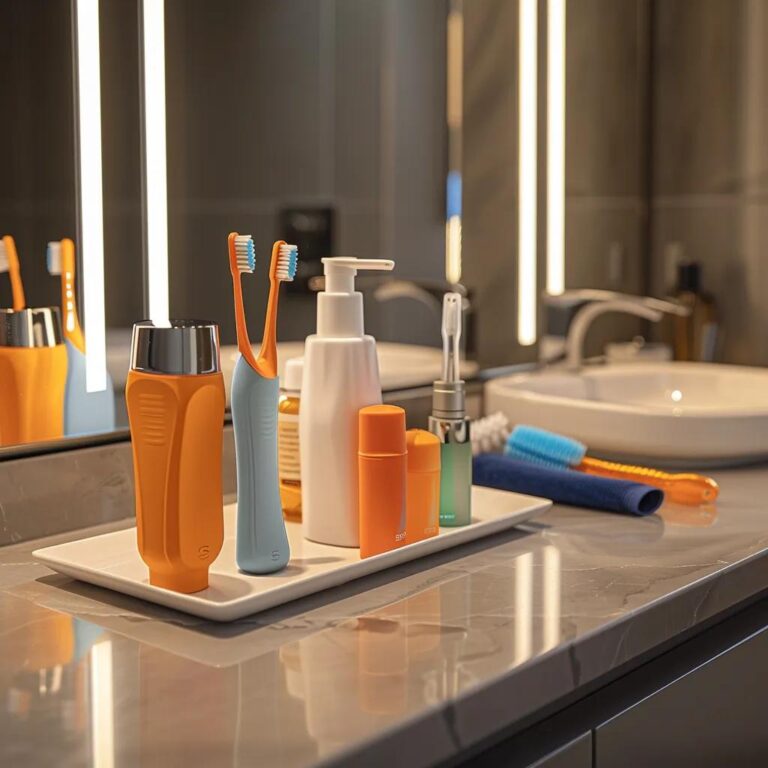

Local Dentist for Kids: What Parents Need to Know
In today’s fast-paced world, ensuring children receive optimal dental care is vital to their overall health and development. With many options available, relying on a local paediatric dentist’s expertise helps parents navigate conflicting information and choices, often augmented by the experienced care of a dentist sandgate. This guide details the benefits of choosing a local dentist for kids, the services offered, and advice on at-home oral health care so that families in the Sandgate Queensland area can confidently secure the best dental care.
Why Should Parents Choose a Local Paediatric Dentist for Their Kids?
A local paediatric dentist offers convenience and specialized care tailored to children. These professionals not only have advanced dental skills but also know how to ease a child’s anxiety and build positive attitudes toward dental visits.
What Makes Paediatric Dentists Different From General Dentists?
Pediatric dentists undergo extra training focused on children’s dental health. They perform standard procedures using techniques that address young patients’ unique needs, including gentle communication and visual aids. Their clinics are designed with child-friendly decor and specialized tools, making every visit a positive experience.
How Does a Child-Friendly Dental Environment Help Your Child?
A lively dental environment with bright colors, engaging toys, and calming music reduces anxiety and encourages cooperation. This setting enables clear communication between the dentist and child while fostering long-term, positive dental habits.
What Qualifications Should You Look for in a Paediatric Dentist?
Parents should look for dentists with a residency in paediatric dentistry, accreditation from professional organisations, proven experience with children, and a commitment to continuing education that ensures current best practices.
What Services Does a Local Dentist for Kids Typically Offer?
Local paediatric dental practices address all aspects of a child’s oral health through a range of services that suit various developmental stages.
What Happens During a Dental Check-Up for Children?
A child’s dental check-up begins with a gentle examination of teeth, gums, and soft tissues using language that is easy for kids to understand. Dentists also observe the child’s bite, speech development, and facial growth to catch early signs of cavities, malocclusion, or other issues.
How Are Teeth Cleanings Performed for Kids?
Teeth cleanings use soft brushes and children-specific toothpaste to remove plaque and tartar buildup. Dental hygienists often demonstrate rinsing and flossing techniques to both the child and parent, reinforcing good home care habits in an educational and gentle manner.
What Are Fluoride Treatments and Sealants, and Why Are They Important?
Fluoride treatments strengthen tooth enamel against decay by making it more resistant to acids. Sealants are protective coatings applied to the chewing surfaces of back teeth, sealing grooves that can trap food and bacteria. Combined, these treatments notably reduce the risk of cavities, particularly during high-risk years.
When Are Fillings and Crowns Needed for Children?
If preventive measures are insufficient, fillings repair minor cavities by removing decay and restoring the tooth with composite resin or amalgam. For more extensive decay or trauma, crowns are applied to reinforce both function and aesthetics while protecting the weakened tooth.
Does Your Child Need an Orthodontic Evaluation?
Even straight-looking teeth can have early misalignments or bite issues. Early orthodontic evaluations can identify these issues and allow for interceptive treatments like braces or expanders, preventing more complex problems in the future.
When and How Often Should Children Visit a Local Dentist?
Regular visits to the dentist are essential for monitoring development, preventing issues, and providing early treatment when needed.
When Should My Child Have Their First Dental Visit?
A child should visit the dentist when the first tooth appears or by the first birthday. Early visits help assess overall oral health, teach proper brushing techniques, and familiarize the child with the dental office, reducing future anxiety.
How Often Should Kids Have Dental Check-Ups and Cleanings?
Children should typically have dental check-ups and cleanings every six months. More frequent visits may be needed for children at higher risk due to diet or pre-existing conditions. Regular appointments help detect issues early and reinforce good at-home care practices.
How Can Parents Prepare Their Child for a Dental Appointment?
Preparation involves positive communication about the dental process, pre-visit orientation at the office, and using children’s books or videos to set a friendly tone. Scheduling appointments when the child is well-rested and not hungry further ensures a comfortable experience.
How Can Parents Maintain Their Child’s Oral Health at Home?
Beyond professional care, daily oral hygiene at home is critical. Parents should establish routines that protect dental health and instill lifelong good habits.
What Is the Best Way to Brush and Floss a Child’s Teeth?
Children should brush at least twice a day using fluoride toothpaste and begin flossing once their teeth touch. Parents are encouraged to assist young children to ensure every surface is cleaned thoroughly, promoting confidence as children learn to care for their teeth independently.
Which Toothbrushes and Toothpastes Are Best for Kids?
Toothbrushes with soft bristles and child-friendly designs make brushing enjoyable, while toothpastes formulated for kids contain the right amount of fluoride to strengthen enamel without risk of ingestion. Many dentists recommend a smear of toothpaste for children under 6 years old, and a pea-sized amount for patients over 6years old.
How Does Diet Affect Children’s Dental Health?
A diet rich in fruits, vegetables, dairy, and lean proteins supports enamel remineralization and overall oral tissue health. Conversely, sugary snacks and beverages can promote bacterial growth and acid production, increasing the risk of cavities. Parents should encourage healthier alternatives to support dental care.
What Common Dental Problems Should Parents Watch For?
Parents should watch for early signs of tooth decay (such as white spots, sensitivity, or discomfort) and gum issues like redness or bleeding. Regular dental visits help catch these conditions early, allowing for prompt treatment and long-term prevention.
What Should Parents Do in a Paediatric Dental Emergency?
In a dental emergency, quick and correct action can significantly affect the outcome. This is especially important for young patients.
How to Handle Toothaches in Children?
For a toothache, if pain, swelling, or fever persists beyond a day, promptly consult a paediatric dentist to determine if decay, infection, or trauma is the cause and to receive appropriate treatment.
What to Do if Your Child Has a Chipped or Broken Tooth?
Rinse the child’s mouth with water and apply a cold compress to the affected area. Avoid hard foods until an evaluation. If possible, save any broken pieces and contact the dentist immediately to assess the damage and determine if conservative repair is possible.
When Should You Contact an Emergency Paediatric Dentist?
Seek immediate dental care if the child experiences severe pain, heavy bleeding, signs of infection (such as fever and swelling), or if a tooth is completely knocked out. Quick intervention minimizes permanent damage and discomfort.
How to Find and Choose the Best Local Dentist for Kids Near You?
Finding the right paediatric dentist requires research and consultation. Recommendations, online reviews, and professional accolades all play important roles in the decision-making process.
What Questions Should Parents Ask When Choosing a Paediatric Dentist?
Parents should ask about the dentist’s qualifications, experience with young patients, available emergency services, treatment philosophy, and preventive care strategies. These questions help ensure the practice meets the family’s needs and creates a safe environment for children.
Why Is Location and Office Environment Important for Your Child’s Dentist?
A conveniently located clinic ensures easy access to emergency care and regular appointments. A welcoming, child-friendly office with interactive waiting areas can make dental visits less intimidating, reinforcing the importance of ongoing dental care.
What Are Common Questions Parents Ask About Local Paediatric Dental Care?
This section addresses common concerns about dental treatment and prevention, helping parents feel confident in managing their child’s oral health.
When Should My Child Start Using Fluoride Treatments?
Children can begin fluoride treatments as soon as the first tooth appears. The paediatric dentist will determine the appropriate timing and dosage based on the child’s age and risk factors to safely strengthen enamel and prevent decay.
Are Dental Sealants Safe and Effective for Kids?
Dental sealants are safe and effective at protecting back teeth by sealing deep grooves where bacteria can accumulate. They can reduce the risk of cavities significantly, making them a valuable tool in preventive dental care.
How Can I Help My Child Overcome Fear of the Dentist?
Creating a positive experience by role-playing visits, using friendly stories and videos, and choosing a gentle dentist can help reduce dental anxiety. Some practices also offer sedation or calming techniques for children who are very anxious.
What Are the Signs of Tooth Decay in Children?
Watch for discolored spots, sensitivity to hot or cold foods, visible pits, or discomfort when eating. Early detection through regular dental check-ups is crucial for preventing more serious problems.
Frequently Asked Questions
Q: How can parents prepare their child emotionally for dental visits? A: Discuss the process in simple terms, read children’s books about dental visits, and schedule appointments during calm times to create positive associations with the dentist.
Q: What role does diet play in preventing cavities? A: A diet low in sugary and acidic foods limits the fuel for decay-causing bacteria, while nutrient-rich foods support natural tooth repair, helping to prevent cavities.
Q: Are there any benefits to early orthodontic evaluations? A: Early evaluations can detect misalignments and crowding, allowing for prompt interventions that guide proper dental development and help avoid more costly treatments later.
Q: How effective are fluoride treatments in reducing dental decay? A: Fluoride treatments strengthen the enamel, making it more resistant to acid attacks, and are particularly effective when combined with good oral hygiene practices.
Q: What should parents do if their child refuses to brush their teeth? A: Make brushing fun with interactive tools, rewards, or by brushing together. If refusal persists, consult a dental professional for tailored advice.
Q: Can childhood dental problems lead to issues in adulthood? A: Yes, untreated dental issues in childhood can evolve into more serious problems that affect both oral and overall health. Regular care helps prevent these long-term consequences.
Common Questions Parents Ask About Local Paediatric Dental Care
Selecting a local paediatric dentist is key to developing healthy oral habits and ensuring the best preventive and restorative care. Choose a practitioner with proven qualifications and experience who creates a child-friendly, calming environment. With comprehensive care—from routine check-ups and cleanings to prompt emergency treatment—and consistent at-home hygiene, families in the Sandgate Queensland area can enjoy healthy, beautiful smiles for years to come.







